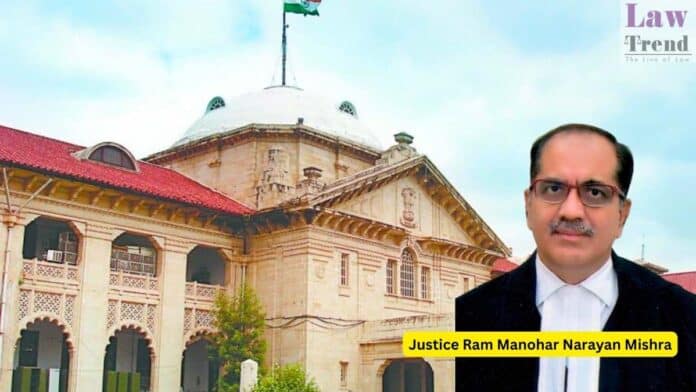In a significant ruling, the Allahabad High Court has quashed criminal proceedings in a dowry harassment case, recognizing a compromise reached between the parties. The judgment, delivered by Justice Ram Manohar Narayan Mishra, highlights the court’s discretion under Section 482 of the Criminal Procedure Code (CrPC) to quash proceedings in cases where a settlement has
To Read More Please Subscribe to VIP Membership for Unlimited Access to All the Articles, Download Available Copies of Judgments/Order, Acess to Central/State Bare Acts, Advertisement Free Content, Access to More than 4000 Legal Drafts( Readymade Editable Formats of Suits, Petitions, Writs, Legal Notices, Divorce Petitions, 138 Notices, Bail Applications etc.) in Hindi and English.




